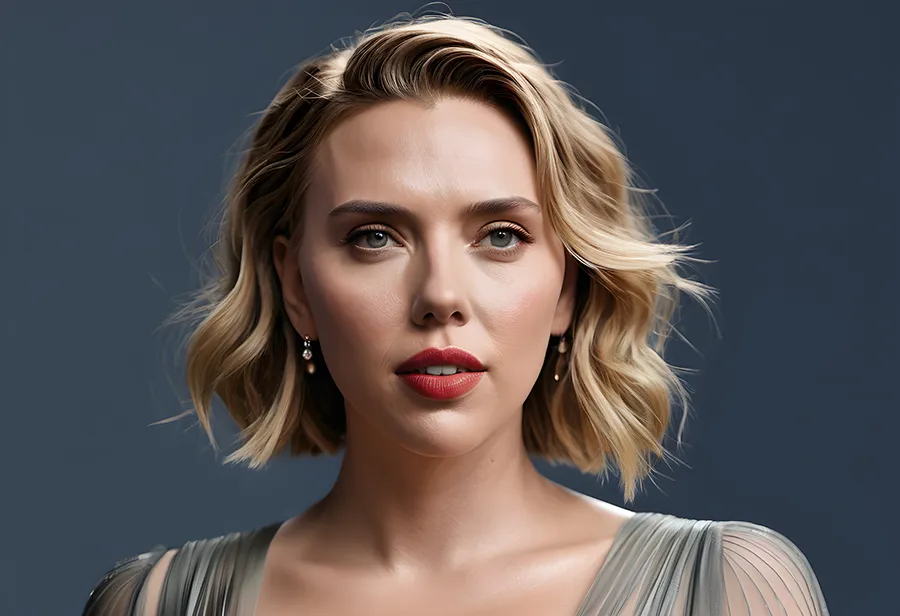The controversy began when OpenAI introduced a new feature in ChatGPT that allowed users to receive responses in various synthesized voices. One of these voices, named “Sky,” was alleged to closely resemble Scarlett Johansson’s voice. Johansson claimed that OpenAI had approached her to record her voice for the system, but she had declined the offer. Despite her refusal, the voice used in ChatGPT was strikingly similar to hers, prompting her to take legal action
Johansson’s representatives confirmed that she had no affiliation with OpenAI and that the use of her voice was unauthorized. Her lawyer, Kevin Yorn, stated that they would pursue all available legal remedies to address the issue. The advertisement featuring the voice was subsequently removed from the platform
OpenAI’s Response
In response to the allegations, OpenAI issued a statement clarifying that the voice used in ChatGPT was not an imitation of Scarlett Johansson but belonged to a different professional actress. They emphasized that the voice was created using advanced AI algorithms and was not intended to mimic any specific individual without consent
OpenAI also highlighted the ethical guidelines they follow in developing AI technologies, stating that they do not deliberately mimic a celebrity’s distinctive voice without permission. They acknowledged the concerns raised by Johansson and announced that they would suspend the use of the controversial voice while they review their processes and ensure compliance with ethical standards
Broader Implications for the AI Industry
The dispute between OpenAI and Scarlett Johansson has brought to light several critical issues surrounding AI voice cloning technology. While the technology offers exciting opportunities for various applications, including personalized virtual assistants and creative projects, it also raises significant ethical and legal concerns.
Copyright and Ownership
One of the primary concerns is the issue of copyright and ownership. AI voice cloning involves training algorithms on vast datasets of voice recordings, which can include copyrighted material. This raises questions about who owns the rights to the AI-generated content and whether it infringes on the original artist’s rights
The music industry, in particular, has been grappling with these issues. AI-generated songs that mimic the voices of popular artists have gone viral, leading to disputes over copyright infringement and the unauthorized use of an artist’s likeness. Some artists, like Grimes, have embraced the technology and offered to share royalties on AI-generated songs using their voices, while others, like Drake, have expressed concerns about the misuse of their voices
Ethical and Legal Frameworks
The rapid advancement of AI voice cloning technology has outpaced the development of legal and ethical frameworks to regulate its use. There is a growing need for clear guidelines and regulations to protect individuals’ rights and prevent misuse. The Federal Trade Commission (FTC) has launched initiatives like the Voice Cloning Challenge to address these issues and encourage the development of solutions to detect and prevent the harms associated with AI voice cloning
Identity Theft and Misrepresentation
Another significant concern is the potential for identity theft and misrepresentation. AI voice cloning can be used to create deepfake audio, where an individual’s voice is manipulated to say things they never said. This can lead to the spread of false information, fraud, and emotional distress for the individuals involved. The technology’s ability to convincingly replicate voices makes it challenging to detect and combat such misuse
Lessons and Future Directions
The controversy between OpenAI and Scarlett Johansson serves as a cautionary tale for the AI industry. It underscores the importance of obtaining consent and respecting individuals’ rights when developing and deploying AI technologies. Companies must prioritize ethical considerations and work collaboratively with stakeholders, including artists, legal experts, and policymakers, to create a balanced approach that fosters innovation while protecting individuals’ rights.
Moving forward, the AI industry must focus on developing robust legal frameworks and ethical guidelines to address the challenges posed by AI voice cloning. This includes establishing clear rules for consent, ownership, and the use of AI-generated content. Additionally, there is a need for technological solutions to detect and prevent the misuse of AI voice cloning, such as watermarking and other safeguards
In conclusion, the dispute between OpenAI and Scarlett Johansson highlights the complex and evolving landscape of AI voice cloning technology. While the technology offers significant potential, it also presents substantial ethical and legal challenges that must be addressed to ensure its responsible and fair use. By prioritizing ethical considerations and working collaboratively, the AI industry can navigate these challenges and harness the full potential of AI voice cloning for the benefit of all.
References
- 1. Digital Music News – A Deep Dive into the World of AI Voice Cloning
- 2. FTC – Preventing the Harms of AI-enabled Voice Cloning
- 3. iMusician – AI Vs. Music Industry: The Rise Of AI Voice Cloning
- 4. The Guardian – Scarlett Johansson Takes Legal Action Against Use of Image for AI
- 5. The Verge – Musicians are Eyeing a Legal Shortcut to Fight AI Voice Clones
- 6. Time – From Scams to Music, AI Voice Cloning Is on the Rise
- 7. Variety – Scarlett Johansson Takes Legal Action Against AI App With Likeness
- 8. Reuters – OpenAI Suspends ChatGPT Voice After Scarlett Johansson Controversy


 ไทย
ไทย
